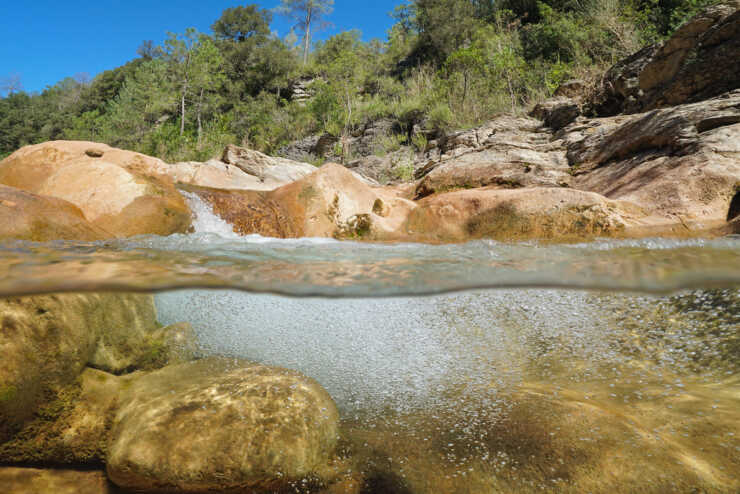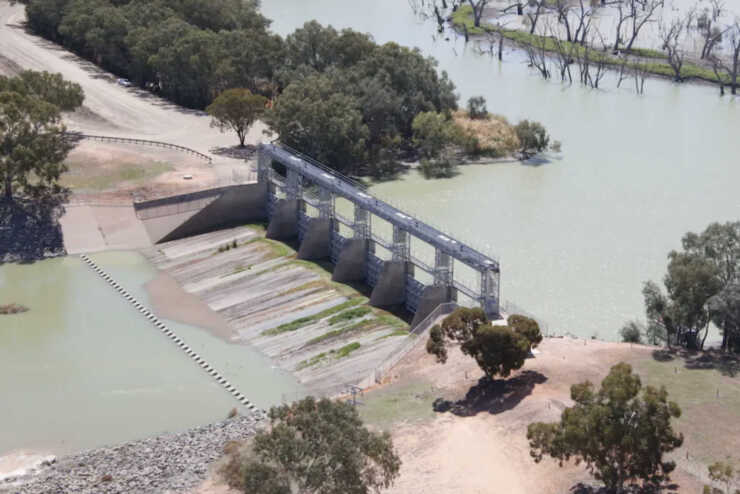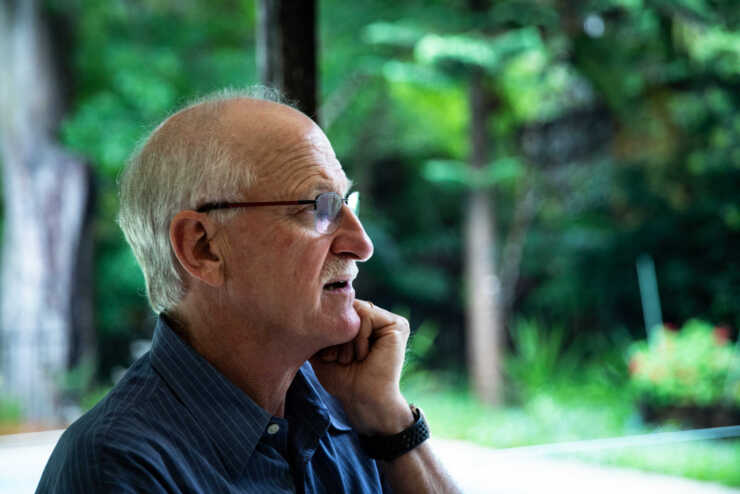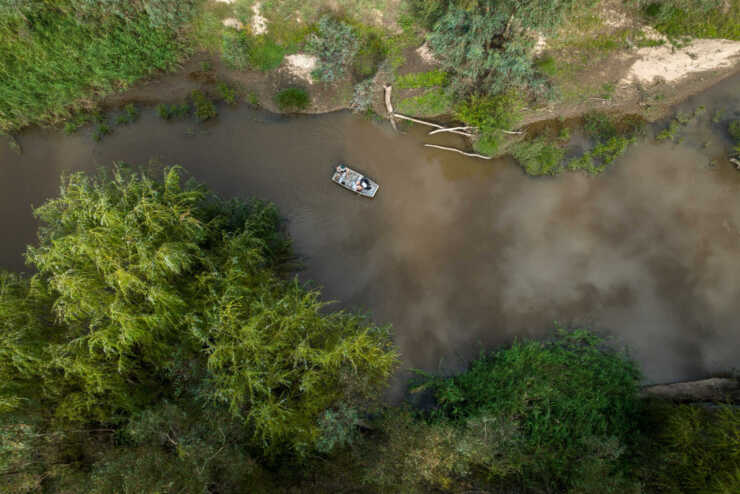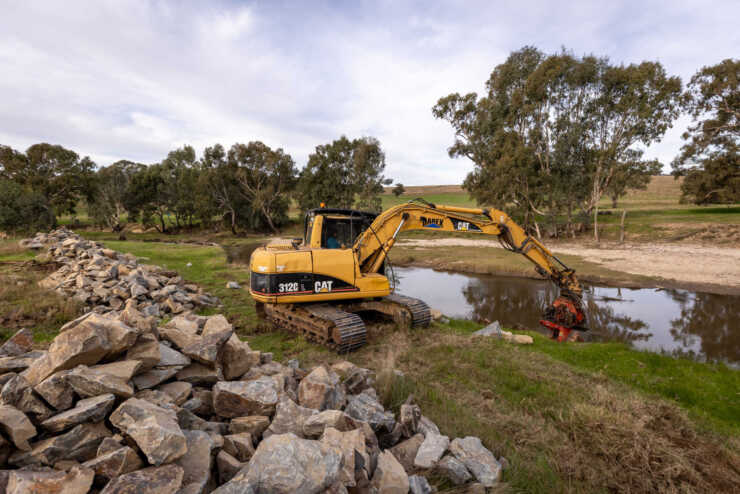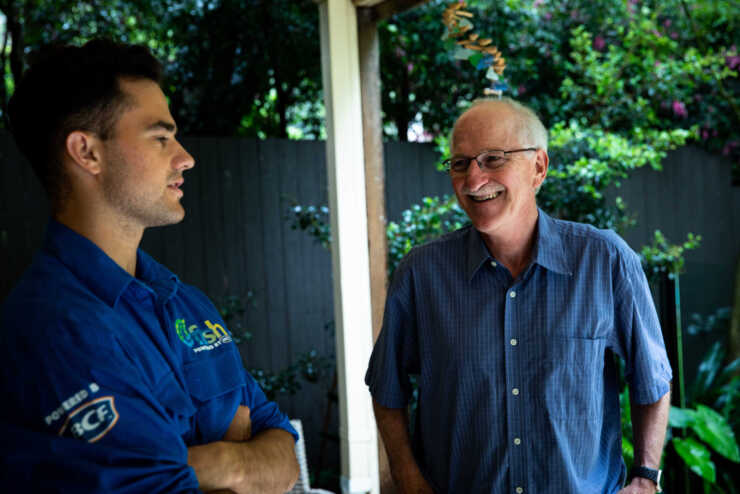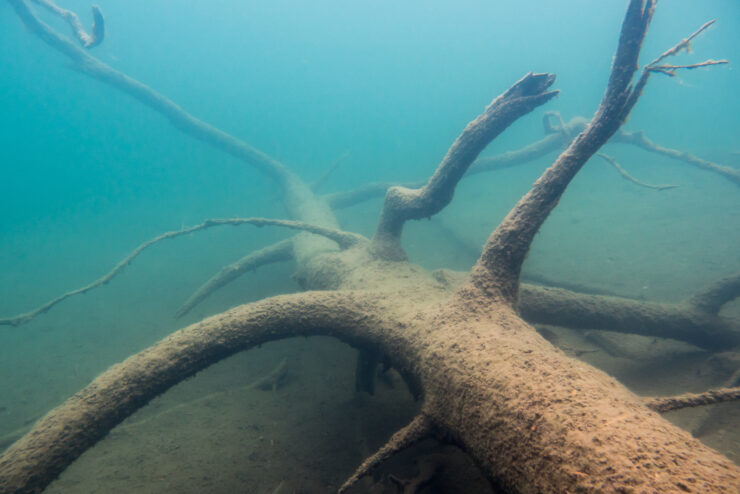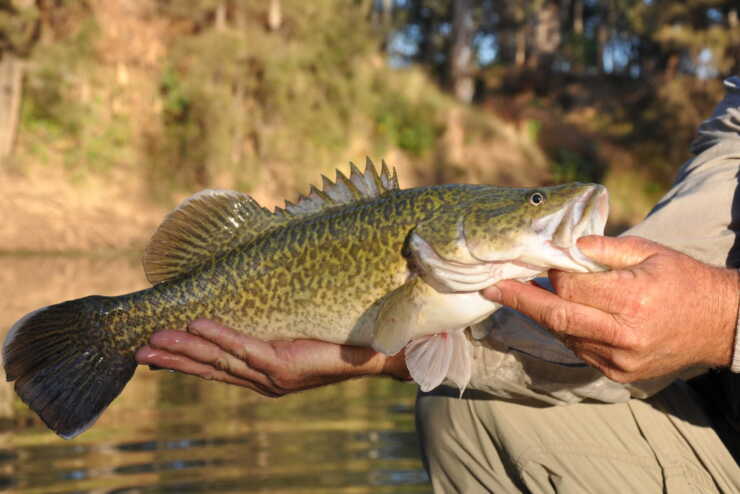On this episode, we chat with Dr Martin Mallen-Cooper about the problems facing the Murray Darling Basin, in particular, the effect of weir pools on flow in the river and the knock-on effect this has on our native fish.
Martin takes us through a step-by-step summary of the demise of the Murray Darling Basin. He identifies five major practices that have incrementally killed fish and aquatic life in the last 100 years, which include; cold water pollution, fish barriers, weir pools, desnagging, and the introduction of carp. **This episode was recorded prior to the Menindee Fish Kills of March 2023. Martin takes a particular interest in the effect of weir pools on flow and fish passage within the Murray Darling Basin and highlights that without flow, aquatic life simply cannot thrive.
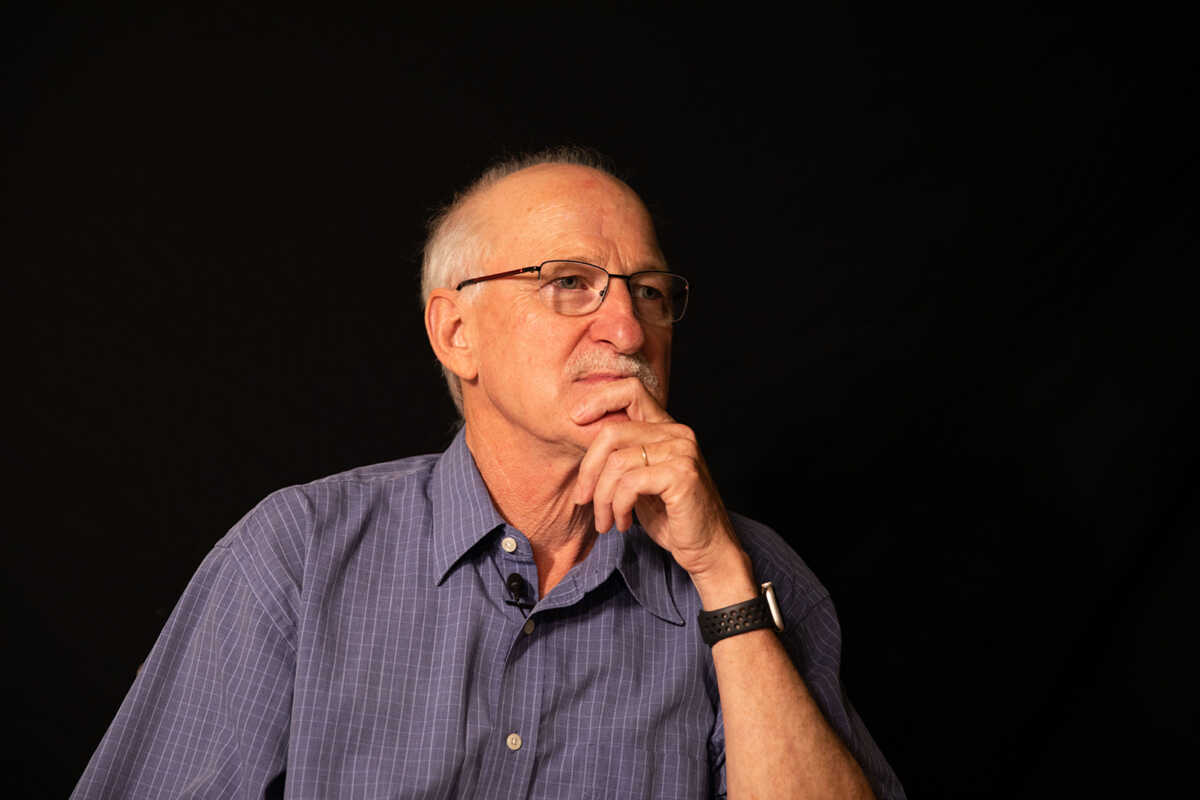
Dr Martin Mallen-Cooper
Dr Martin Mallen-Cooper is a highly respected river ecologist from Australia. He was born in 1958, in Sydney and grew up with a strong love for the ocean, rivers, and fishing, which led him to pursue a career in aquatic sciences. Dr Mallen-Cooper received his undergraduate degree in Environmental Science from the University of Technology Sydney in 1980, where he developed a passion for freshwater ecosystems. He worked as an environmental consultant and then joined NSW Fisheries in 1984 to start research on the design of fishways (structures to get migratory fish past dams and weirs), which became the subject of his PhD.
Numerous fishways had been built for over 70 years, but they were all unsuccessful in passing native fish. Dr Mallen-Cooper’s pioneering research found that existing fishways were not designed for the range of river flows in Australia; and critically, water velocities and turbulence were too high for native fish. The old fishways were based on salmonid designs from the northern hemisphere. Dr Mallen-Cooper developed the first fishway design criteria for native fish, and effective fishways followed. Dr Mallen-Cooper has now advised on over 250 projects across the Murray-Darling Basin, including most weirs and floodplains along the Murray River and Baawan-Baaka (Barwon-Darling).
Along with fishways, Dr Mallen-Cooper did research on freshwater fish migration in the Murray-Darling Basin. In the 1990s he changed the predominant view that it was only adults of golden perch and silver perch migrating upstream to spawn; in fact, 95% of the migratory population were immature fish. This finding changed the primary objectives of fish passage to include these smaller fish.
He aged the fish using the earbones (otoliths) which show each year of growth like a tree-ring. Silver perch were much older than previously thought; fish only 400 mm long could be 25 years old! In a ground-breaking result, he also found that golden perch and silver perch were spawning on small pulse flows, as well as large floods. This fundamentally changed river flow management to protect these small, but highly valuable, flows.
Challenging accepted thinking has been a hallmark of his career. A good example is the accepted view that historically the Murray River dried to a series of pools in droughts. Contemporary scientists interpreted this as natural and therefore fish and other river animals are adapted to life in still pools, as well as a flowing river. However, using archival data and research in old library files and books, Dr Mallen-Cooper and colleagues found that it was an exaggerated myth. In fact, early irrigation by numerous small pumps had caused the river to stop flowing historically. Moreover, it not only flowed but the Murray River had a big spring pulse of flow every year, even in droughts. Significantly, this meant a flowing river is the norm and that the fish are actually adapted to these conditions; this is now becoming a major theme (ecohydraulics) in environmental flow management. The finding also showed that weirs change a flowing river to pools, which has severely impacted fish and other aquatic animals. It also revealed a huge opportunity – that removing weirs can recreate the original flowing river and bring back native fish.
Dr Mallen-Cooper also examined archival data and books on the Baawan-Baaka (Barwon-Darling River). In the Millennium Drought (2001-2009) many scientists and managers said “it is a desert river – of course it doesn’t flow”; while Aboriginal people said it used to flow most of the time, even in droughts. Dr Mallen-Cooper’s research supported the Aboriginal view, confirming that storage and diversion of water upstream had caused the loss of low flows. He continues to work with Aboriginal people on the overlap of Aboriginal Science and Western Science.
Dr Mallen-Cooper has worked extensively overseas in Laos, Cambodia, Thailand, Vietnam, Myanmar and Indonesia. One of Dr Mallen-Cooper’s most notable achievements has been his work advising the governments of the Mekong River, especially Laos and Cambodia, and the Mekong River Commission on fish ecology, fish migration, and balancing the development of hydropower with food security, livelihoods, and biodiversity.
Throughout his career, Dr Mallen-Cooper has been a vocal advocate for the sustainable management of freshwater ecosystems. He has played a key role in the development of numerous policies and regulations aimed at protecting and sustaining these ecosystems. In recognition of his contribution to the field, Dr Mallen-Cooper received the prestigious 2018 International Career Achievement Award in Fish Passage. Dr Mallen-Cooper’s work is widely recognized in the scientific community, and he has been invited to speak at numerous conferences and symposia on fish ecology and river rehabilitation.
Dr Mallen-Cooper continues to be actively involved in the field of river ecology, and his research has been published in numerous scientific journals. He is highly respected by his peers and is considered to be one of Australia’s foremost experts in the management and conservation of freshwater resources.
Like to watch as well as listen? Check out the video of the podcast below.
This OzCast uncovers:
- What are the five major issues in the Murray Darling Basin?
- Why are weir pools so damaging?
- What is a blackwater event and what is the connection to flow?
- How important is cultural science?
- Should we be optimistic about the future of our inland rivers?
Further reading:
- Martin Mallen-Cooper and Brenton P. Zampatt – Restoring the ecological integrity of a dryland river: why low flows in the Barwon-Darling River must flow
- History, hydrology and hydraulics: rethinking the ecological management of large rivers
- The Land – Murray Darling Basin drought myth disservice to environmental progress
- The Land – Report finds water storage and diversion exacerbated the Darling’s low flows







